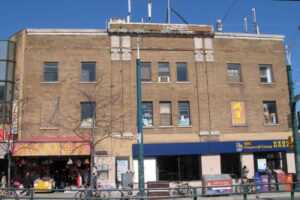Montreal, a city known for its rich tapestry of cultures, languages, and traditions, boasts a media landscape that’s as diverse as its inhabitants. Within this sphere, the Anglo-Weekly Hour Community held a special place for the English-speaking denizens of Montreal. However, like many print media institutions of our age, it faced its own set of challenges, ultimately folding in 2012 after an ambitious attempt at revitalization. Let’s delve into this poignant chapter of Montreal’s journalistic history.
A Brief Background: The Birth of Anglo-Weekly Hour
The inception of Anglo-Weekly Hour wasn’t just a matter of business—it was a reflection of Montreal’s ever-evolving linguistic landscape. For those who weren’t around during its early days, it’s a tad hard to fathom the excitement it stirred.
- Why did it matter? In a city where French is predominant, the English-speaking community often sought a voice, a platform, if you will. The Anglo-Weekly Hour became that platform.
- A Cultural Confluence: It wasn’t just about news; it was about culture, events, local stories, and more. It painted a picture of the English-speaking Montrealer’s life, with all its hues and shades.
Rising Against The Tide: Challenges Galore
It’s no secret that print media globally has been facing, well, let’s call it a “rough patch.” With the digital age surging forward, many traditional media houses have faced the brunt. The Anglo-Weekly Hour was no exception.
- Digital Tsunami: The onslaught of online news, blogs, and social media meant that many readers migrated online, looking for bite-sized, real-time information.
- Financial Strains: Maintaining a print media house isn’t just about printing news. It’s about salaries, operational costs, and overheads. With decreasing subscriptions and ad revenues, the financial stress was palpable.
- A Diverse Population: Montreal’s English-speaking community is a blend of various ethnicities, preferences, and age groups. Catering to this diverse populace meant continuously evolving and staying relevant.
The Grand Revival Attempt of 2012
Ah, 2012! A year of hope and ambition for the Anglo-Weekly Hour. The team, well aware of the challenges, decided to go big or go home.
- Redesigning The Look: Out went the old, in came the new. A refreshed design aimed at the younger audience, hoping to pull them into the fold.
- Diverse Content: No longer just news, the paper explored lifestyle segments, entertainment, local business highlights, and even some dabbling in tech news.
- Community Engagement: Events, workshops, and community engagement programs were initiated, all in an attempt to reinforce the paper’s commitment to its readers.
Lessons from The Fold: What We Can Learn
Now, here’s where we don our thinking caps and ponder. Despite the best efforts, the beloved media house folded. Why?
- Adapting Too Late: While the changes in 2012 were commendable, perhaps they came a tad too late? The world had already shifted majorly towards digital by then.
- Understanding Audiences: In a bid to appeal to the younger audience, did the paper alienate its loyal, older readership?
- Economic Factors: Global economic challenges around that time might have also played a role, tightening ad spends and reducing disposable incomes.
The Legacy Lives On: A Tribute to Anglo-Weekly Hour
While the curtains might have come down on this Montreal institution, its legacy is undeniable. For many Montrealers, it’s a trip down memory lane, a remembrance of days when news had a personal touch, when stories from your neighborhood made headlines, and when the world felt a little closer, a tad more intimate.
- A Reminder: In the age of fleeting news cycles, the Anglo-Weekly Hour serves as a reminder of the importance of deep, local journalism.
- Inspiring New Avenues: Several online platforms, blogs, and local news sites owe their inspiration to institutions like the Anglo-Weekly Hour, striving to keep local journalism alive.
- A Testament to Perseverance: Despite the odds, the paper tried, it adapted, and it fought. In its journey, it’s a testament to the spirit of journalism and the undying love for community stories.
“One’s end is another’s beginning.” The story of Montreal’s Anglo-Weekly Hour, though marked by an end, sparks the beginning of countless stories, discussions, and inspirations. As we reminisce, let’s also look ahead, ensuring that the spirit of community, news, and storytelling never fades.
For a detailed history on Montreal’s media landscape, visit Wikipedia.









